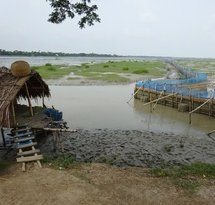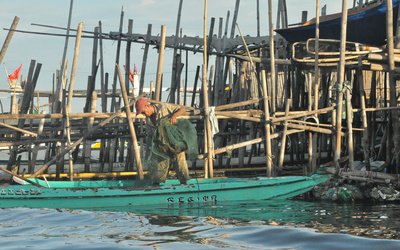Last year at COP26, the Netherlands, alongside 38 other governments and institutions, committed to the Glasgow Statement on International Public Support for the Clean Energy Transition. By signing this statement, the Netherlands has committed to ending new direct public support for the international unabated fossil fuel energy sector by the end of 2022- a commitment it has yet to deliver.
With this letter, 20 civil society organisations call on the Netherlands to announce its implementation policies for the Glasgow Statement ahead of the Export Finance for Future (E3F) Summit on the 3 November. The E3F Summit is a critical opportunity for the Netherlands to uphold the commitments made in Glasgow last year, alongside all other E3F members.
The recent E3F transparency report highlighted that Netherlands insured 6x more fossil fuel transactions than renewables from 2015-2020, with 3 billion EUR in fossil fuel transactions compared to only 0.5 billion EUR in renewables. This demonstrates that a fossil-fuel exclusion policy for Dutch export support is urgent, and essential, to align the Netherlands with its Glasgow commitment and the Paris Agreement.

On Sunday the 10th of March 2019 Both ENDS will be taking part in what is expected to become the largest climate march in The Netherlands as of yet. The march is organised by Milieudefensie, Greenpeace, Oxfam Novib, FNV, De Goede Zaak and the Woonbond and supported by Both ENDS and a large number of diverse civil society organisations. Together, we demand a safe future for ourselves, our children and for all people whose lives have already been or will soon be made almost impossible because of the effects of climate change such as droughts, disease, floods or food shortages.

An increasing number of stakeholders in the Dutch water sector are acknowledging the importance of an inclusive approach to climate adaptation. However, where our knowledge institutes and companies are involved in delta plans and master plans, as in Bangladesh and the Philippines, this approach is proving difficult to apply in practice. Taking local realities, vulnerabilities and inequalities – such as those between men and women – as a starting point is essential for good plans that give everyone the opportunity to adapt to climate change.
The Corona crisis is showing us just how closely our current economy is irrevocably intertwined with the pollution of the planet and is making people all around the world more and more vulnerable. Both ENDS and MVO Nederland (CSR Netherlands) – are particularly concerned about what we hear about human rights, climate and the environment. We ask the Dutch government, in a letter to Minister Kaag, to commit to achieving the Sustainable Development Goals (SDGs) and the goals of the Paris climate agreement.

Dutch export credit agency Atradius DSB announced yesterday that it is to provide export credit insurance worth 1,5 billion euros to Dutch dredging company Boskalis for a controversial land reclamation project in the Philippines. According to Dutch and international organisations, including Both ENDS, CARE Netherlands, IUCN NL, Kalikasan PNE and Oceana Philippines, the award of export credit insurance for this project runs contrary to the Netherlands' ambitions in the areas of environment and corporate social responsibility (CSR).

The decision of Minister for Climate and Energy Rob Jetten to withdraw from the Energy Charter Treaty (ECT) is good news for the energy transition in the Netherlands and beyond. Governments of countries that are party to this treaty can therefore shape the transition to sustainable energy without having to fear claims by Dutch-based businesses.

In these past months, the world has been rocked by a new major threat, in addition to climate change: the rapidly spreading COVID-19 virus. Large efforts are being made in many places to deal with this crisis and, understandably, the concerns about the climate have, faded somewhat into the background. We don't know what the future holds or when the COVID-19 crisis will be behind us, but unfortunately it is certain that global climate change has not stopped by then. This is why, even though so many urgent matters have to be dealt with, we continue to support global climate action.
This Friday April 3rd, global online climate actions will take place. We call on everyone to join and share these actions.